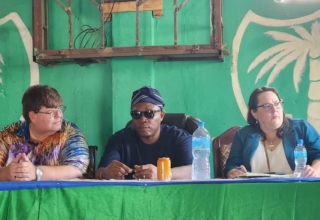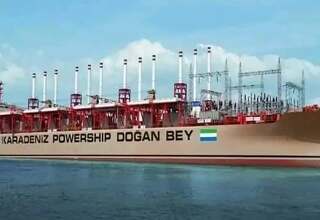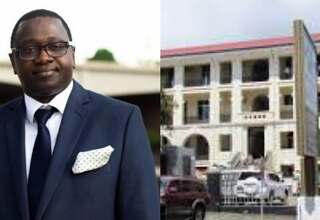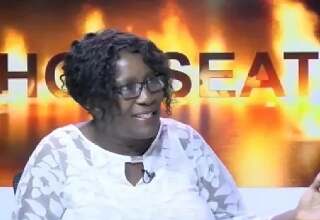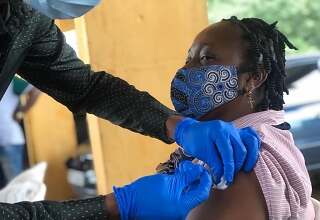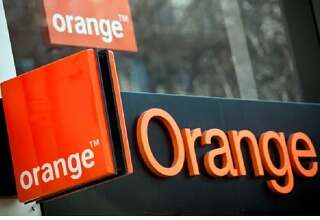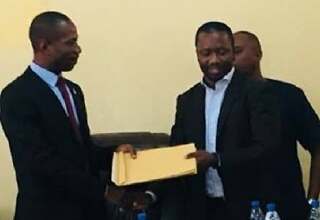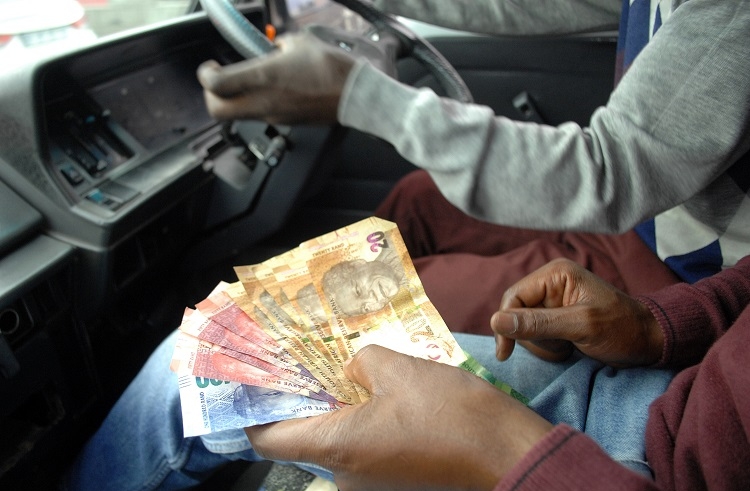
By : Ing. Yayah A. B. Conteh.
Those who are relatively economically balanced and somehow influential in our societies today are spending huge sums of money on a vast and unprecedented scale in order to combat the economic challenges of the day, at least in a desperate effort to maintain and uphold the status quo. Those who are not so endowed or blessed, on the other hand, have come to accept life as it is, and continue to face the market forces headlong in a bid to keep body and soul together.
I get amazed these days at the fact that a substantial proportion of our heartless and ill-bred citizens, especially those in the transport and trade sectors of the economy, are too busy fattening us for the kill, more particularly whenever there is an increase in the pump price of fuel products.
An increase in the pump price of these products always seem to inflict an immeasurable woe on our nation.
The recent increase in the pump price of fuel products from NLe21.5 to NLe25 per litre has given our drivers a heyday, appearing more to be a curse rather than a blessing for the vast majority of the citizens.
The general attitude of our local taxi, poda-poda and keke/tricycle drivers in increasing transport fares with impunity has always dealt a paralyzing blow to the vast majority of our unfortunate passengers.
During peak hours, long queues of passengers can be seen waiting for public transport. Those who cannot endure the constraints of long hours of waiting simply break out of the line and embark upon walking home instead as an alternative means. But how many times can one afford to trek it always on foot, especially for longer distances and when we have torrential downpours?
There is no denying the fact that not all citizens are fortunate to own private vehicles. The not-too-fortunate ones have no choice but to board public transport from one place to another in the discharge of their day-to-day duties.
Not too long ago, in my presence, three young men awaited to board a taxi from somewhere around Calabar Town Last Station to Ferry Junction. A taxi cab suddenly approached them, coming to an instantaneous halt, with the driver’s face beaming with mischievous enthusiasm. He peered searchingly into their faces and charged them NLe15 each, a distance that previously went for NLe10. The three men screamed in frenzy at the sudden hike in the transport fare, at which the driver quickly reminded them of the recent increase in the litre of petrol. This was just a comparatively small percentage increase which was not commensurate to that of the driver’s, at least from a mathematical point of view.
It is not an exaggeration to point out here that residents nowadays are spending more money and time to get to their desired destinations, as the capital city of Freetown is rapidly expanding and adding more traffic by the day.
What is lacking in our public transport system is the spirit of competition with the private sector. Where indeed there is no competition there is no quality, and where there is no quality there are no options of choice.
We should not be hesitant at this juncture to haul blame at the traders too who have transcended their boundaries in fixing the cost prices of goods and services in their various shops or enterprises, especially each time there is an increase in the pump price of fuel products, and notwithstanding the fact that the dollar exchange rate to the local Leone remains virtually the same.
Meat and other foodstuffs rich in protein like eggs, chicken and many more, meant to be consumed on a daily basis, at least in order to help build, strengthen and develop the body metabolism are being sold at skyrocketing prices, far from the reach of the average citizen.
Imagine a pound (lb.) of meat being sold at NLe60, or a bag of rice (our staple food) going for over NLe700! How many times in a month, in a year, can an average family afford to include meat in its diet? And, in the case of a much larger family, how many bags of rice will be needed to feed that family for the whole month?
I must confess here with brutal frankness that only a microscopic fraction of the so-called drivers and traders that might not be involved in this murky scheme of broad day exploitation of the privileged and underprivileged masses (even when the exchange rate of the dollar remains stable, and the pump price of fuel products increase just by a minimal percentage); rather, it is a vast web of criminals masquerading as patriotic citizens of the nation engaged in this nefarious and inhuman act.
I always liken this scenario of exploitation in our country to that of the story of the prodigal son in the bible, found in Luke15:23, New International Version: Bring the fattened calf and kill it, and let us eat and celebrate.
When the prodigal son reconciled with his father after his long absence from the fatherland, the father requested, amongst other things, that the calf they have been fattening be killed in honour of his son so that they celebrate his homecoming.
But alas, this time round, contrary to the scenario of the prodigal son, we are being fattened not for a feast but for the kill, because judging by the pace at which unscrupulous drivers and traders are exploiting the majority of the citizens and, if government fails to put the necessary remedial and preventive measures in place to keep the situation at bay, I’m afraid we would all just be chasing the wind.
No doubt by the time we go through the stranglehold of the emotional and psychological torture suffered at the hands of these drivers and traders, including even many others in other related fields of endeavour not captured in this discussion, and with government remaining insensitive to addressing the thorny issues aforementioned, we would then have graduated from the fattening phase of same to that of the kill, where only the fittest will survive.
Do we still have teams of price controllers in our country as in the past, whose official duties were to check the excesses of our traders in the price fixing of goods and services for public use?
Are there still sanitary officers charged with the responsibility of monitoring the quality of meat products delivered for sale at our market places, as was the case in the past?
The list of those that were charged to monitor and report to government the activities of others in various ministries, like in those of transport and trade under discussion, for corrective measures to be implemented against defaulters, goes on and on.
Central government should design programmes that would improve upon the present transport inadequacies in the country by providing affordable access through robust mechanisms such as regulated and standardized transport fares, flooding the market with new buses to vigorously compete with the private sector. These measures would all go to cushion poor and vulnerable populations.
Ing. Yayah A. B. Conteh is the Director of the Mechanical Services Department (MSD) of the Sierra Leone Roads Authority (SLRA).
Tel. nos : 076640364 / 077718805.
E-mail: [email protected].


